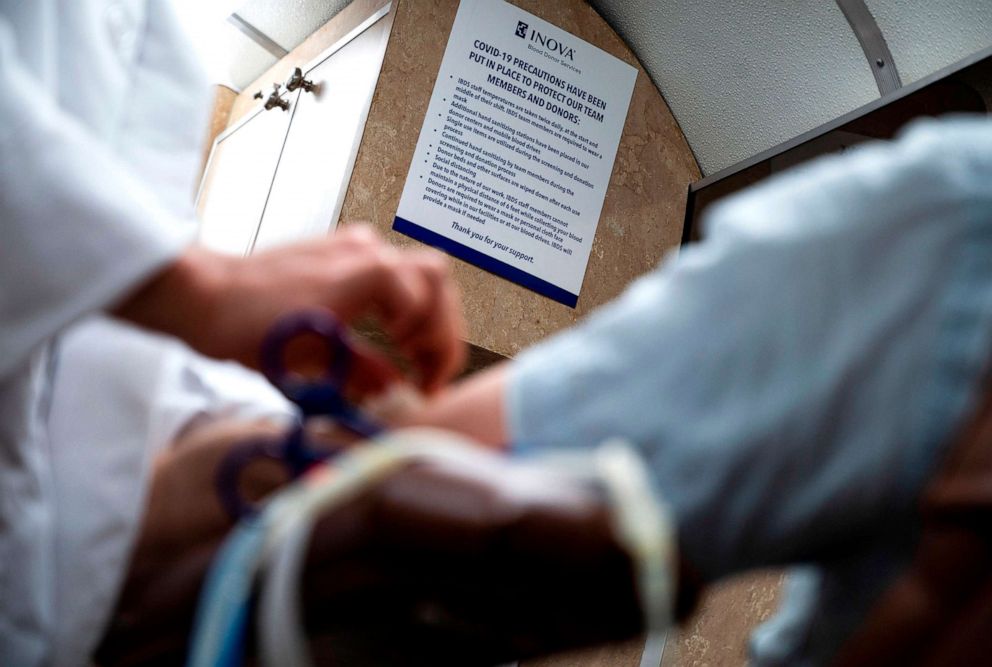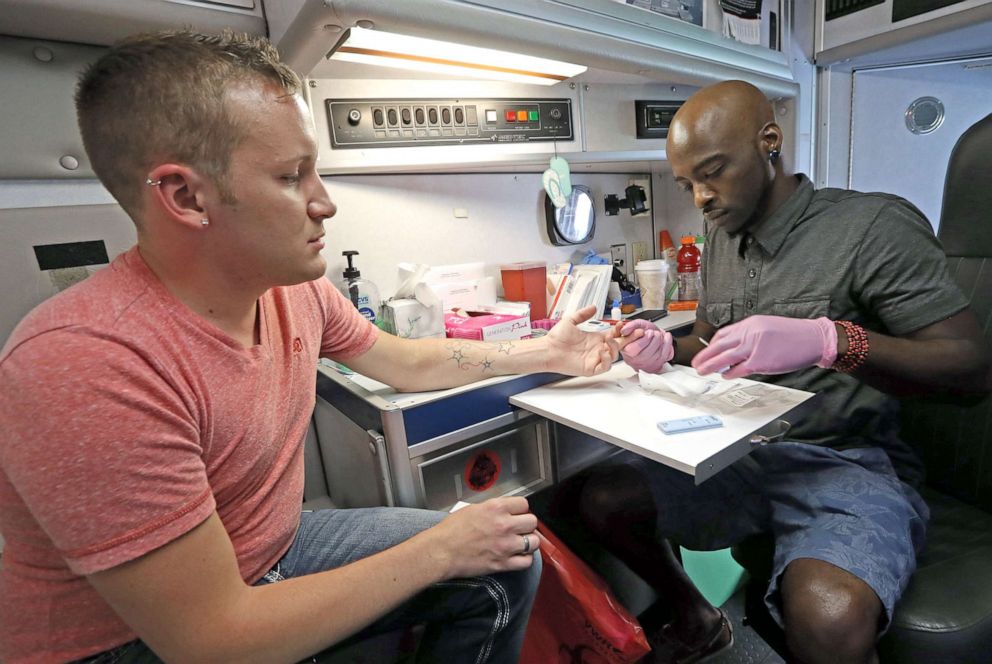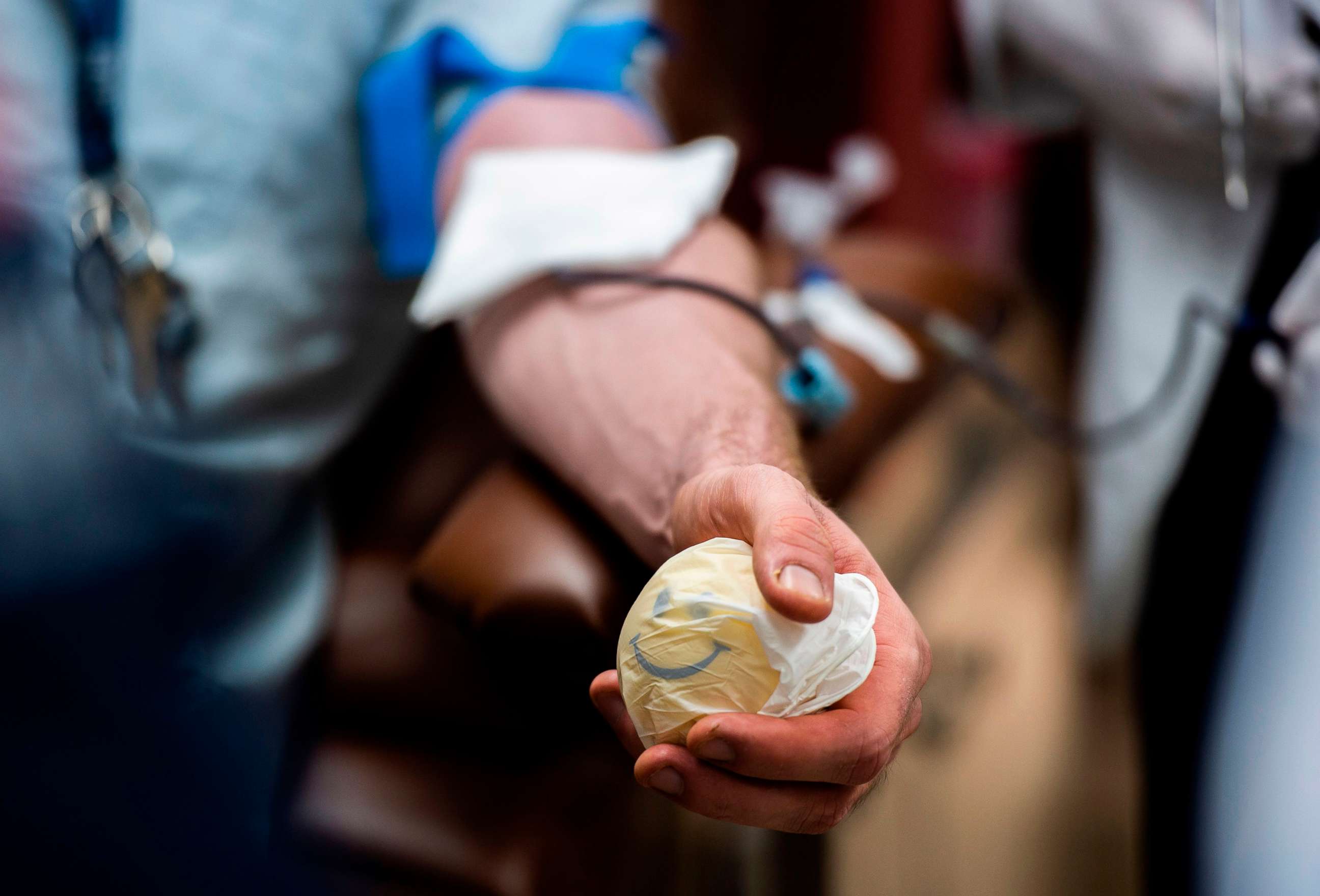Gay men still face hurdles to donate blood amid national shortage
The American Red Cross called this the "worst blood shortage in over a decade,"
The U.S. is facing a national blood crisis, the "worst blood shortage in over a decade," the American Red Cross warns. Despite this urgent need for donations, people who have sex with gay or bisexual men are still facing restrictions on their ability to give blood.
The Food and Drug Administration bars people who have had sex with gay or bisexual men from donating blood for three months following the most recent sexual contact because of fears of HIV in the blood supply.
The agency changed the deferral period from 12 months to three months in November 2020 as blood donations fell and hospitals faced critical shortages during the first year of the COVID-19 pandemic.
Some advocates, including the Human Rights Campaign, say the FDA is moving too slowly on removing the restriction, saying that it's an outright ban on the ability of people, particularly gay and bisexual men, to donate blood.
"Just like other individuals throughout the country, many people have sex on a regular basis, including with partners and spouses," said Sarah Warbelow, the legal director at the LGBTQ advocacy organization the Human Rights Campaign.
"It really amounts to being an effective ban, based on a person's identity rather than an actual factor on the science," she added.

In 2015, the guidance changed from a lifetime ban to a 12-month deferral, and the FDA determines the guidance used by all U.S. blood collection organizations.
Restrictions on blood donations from gay and bisexual men, who are considered to be at high risk for HIV or AIDS transmission, date back to the 1980s.
Gay and bisexual men undergo individual risk assessments instead of time-based bans in countries around the world, recently including Greece and France, according to international reports. Italy, Israel, and several other countries have similar requirements.
In 2020, ABC News broke the story that several major blood donation organizations -- including the American Red Cross, Vitalant, and OneBlood -- announced that they are working together to study and provide data to the FDA to determine if eligibility based on an individual’s risk can replace the current time-based deferral system while maintaining the safety of the blood supply.

Vitalant told ABC News in a new statement that researchers are halfway toward its goal of enrolling 2,000 participants across eight cities: Washington D.C., San Francisco, Orlando, New Orleans/Baton Rouge, Miami, Memphis, Los Angeles, and Atlanta. They encourage gay and bisexual men who are 18 to 39 years old to participate in the research.
The FDA, in a statement to ABC News, said that this study could generate data that will help the agency determine if a donor's individual risk assessment and questionnaire would be just as effective in reducing the risk of HIV in the blood supply as the time-based deferrals the FDA already has in place.
The FDA also said it does not have a specific timeline for when these studies will be completed but that it is "committed to gathering the scientific data that can support alternative donor deferral policies that maintain a high level of blood safety."

The America Red Cross said that there is no clear data that would suggest that changing this blood donation policy would significantly increase the number of blood donations, but the organization says it does not intend to discriminate against the LGBTQ community.
"We believe blood donation eligibility should not be determined by methods that are based upon sexual orientation and we’re committed to achieving this goal," the American Red Cross said in a statement to ABC News.
However, according to the organization, doctors are now being forced to decide which patients receive blood transfusions and who is forced to wait due to the shortage. The organization says that "a lack of blood and platelet donations are critically needed to help prevent further delays in vital medical treatments."
"Donors who are excluded solely on their membership in a group ... doesn't encourage safe sexual behaviors in the integrity of the population," Warbelow, from HRC, said. "We want people to be engaged in safe sex practices. And we want to ensure that our blood supply is safe and sufficient."
ABC News' Tony Morrison contributed to this report.




